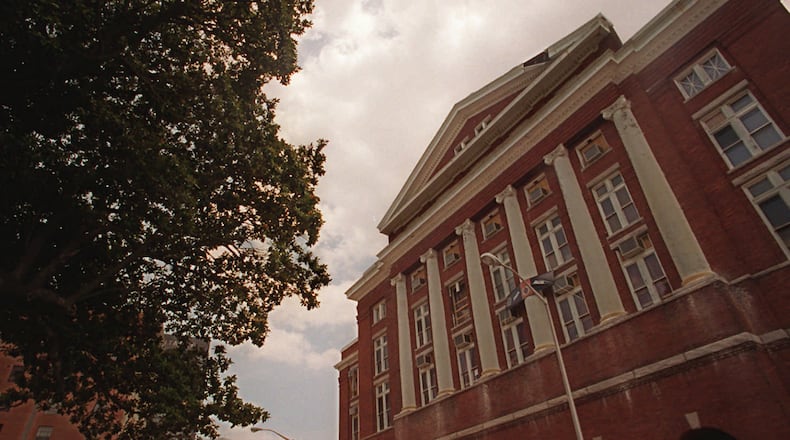Q: Has The Tabernacle in downtown Atlanta always been a concert venue?
A: The Tabernacle has heard the sermons of 20th century Baptist ministers, has felt the shaking of rockers like Sting, and has withstood natural disasters like the 2008 Atlanta tornado outbreak. Today, the red brick landmark in downtown Atlanta is known for the unique magic shared by the bands and concertgoers as an intimate venue and event space, holding 2,600 people.
The Tabernacle, originally the Baptist Tabernacle and nicknamed Broughton’s Tabernacle after its founder Dr. Leonard Gaston Broughton, was once filled by a 4,000-member Baptist congregation. Broughton was looking for a space to better suit the growing parish, and sought a property at 152 Luckie St. He and a few deacons put their money together and in July of 1906, they bought the building for $52,000.
It wasn’t until 1911 that the first sermon was delivered inside the Tabernacle. The building remained a place of worship until the congregation’s membership dwindled. In October 1994, the church was sold to a group of investors who intended to revive the building for the 1996 Summer Olympics, which were hosted across the street in Centennial Olympic Park.
Reopened in ’96 as a House of Blues, performers like The Blues Brothers, Johnny Cash and Al Green re-energized the space. Following the Olympics, the property changed hands. New owner Lance Sterling resurrected the name The Tabernacle, in honor of its beginnings, and in April 1998, the Dave Matthews Band marked the venue’s transformation with the Tabernacle’s first official performance. Today, events and concert promoter Live Nation operates the Tabernacle.
Since 1998, “The Tabby” has hosted performers ranging from Outkast to Tom Petty to Dave Chappelle. Adam Cohen, vice president of booking at Live Nation, offers without hesitation his most memorable Tabernacle experience: “Prince. Nov 22, 2000.”
Throughout its history, the Tabernacle building has seen more than a century of change in Atlanta and survived the 2008 tornado that swept through downtown, destroying several historic buildings nearby and parts of Centennial Olympic Park. After the tornado, the entire original roof from 1910 was renovated and “a range of minor repairs resulted,” said Andrew Jeon, marketing manager for Live Nation.
Much of the original architecture from 1910 remains, including a full pipe organ. Since Live Nation took over operations, it has added neon lighting in the bar and fanciful paintings on the walls, charity events, and a range of performers that have risen out of the “hip hop and indie explosion,” said Jeon.
If you’re new in town or have questions about this special place we call home, ask us! E-mail q&a@ajc.com or call 404-222-2002.
About the Author
The Latest
Featured


